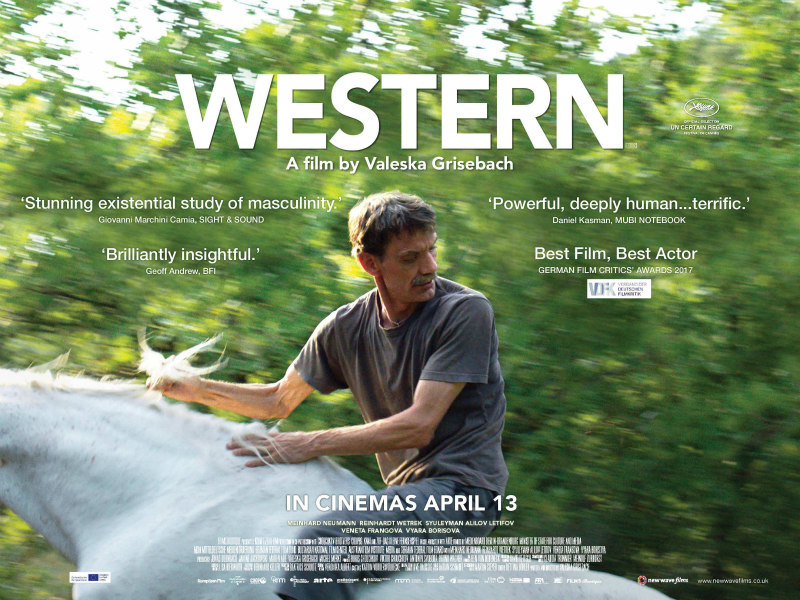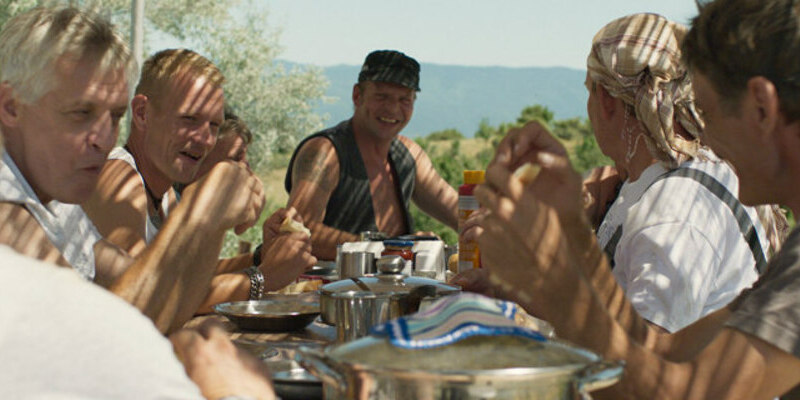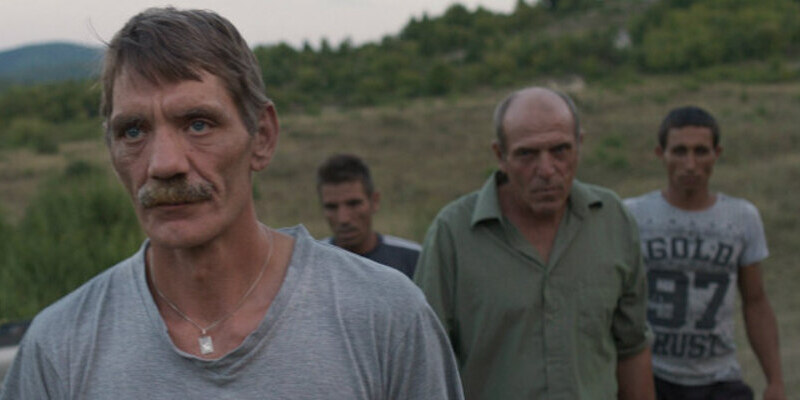
A German man finds himself torn between his migrant co-workers and the
locals of a rural Bulgarian community.
Review by
Eric Hillis
Directed by: Valeska Grisebach
Starring: Meinhard Neumann, Reinhardt Wetrek, Syuleyman Alilov
Letifov, Veneta Fragnova

Every good western worth its salt includes a scene in which, usually while munching on beans around a campfire, the (anti)hero opens up to his companions about his desire to leave behind his life of violence and settle down, find a good woman and a small patch of land to call home.
In Valeska Grisebach's Western, the hero, Meinhard (Meinhard Neumann), has just such a desire, and he may have found that patch of land in the least expected of places - a small village in rural Bulgaria.
Meinhard is part of a crew of German migrant workers sent to lay down the foundations for a power plant on the border between Bulgaria and Greece. Unlike his compatriots - a loud, boorish lot who treat the natives with about as much respect as the German men who rolled into Bulgaria in WWII ("We're back after 70 years!" one of the men drunkenly proclaims) - Meinhard is quiet and introspective, and doesn't view the natives as a lower species.

When a dispute arises over access to water needed to mix cement on the construction site, Meinhard finds himself caught between his co-workers and the locals, having grown far more fond of the latter than the former.
Right wing (and, increasingly, left wing) groups in Western Europe are forever pushing a xenophobic, anti-Slavic narrative that portrays Eastern Europeans as an aggressive people prone to criminal activities (and interfering in western elections). The truth is that every Western European nation has a high portion of immigrants from the East, and the amount of trouble they've caused in comparison to the natives is practically non-existent. The same can't be said for Western Europeans, who on visits to Eastern Europe (usually for stag nights) are forever bringing disrepute on their countries by causing all manner of alcohol inspired trouble, displaying an obnoxious, arrogant air of superiority.

It's easy to see why Meinhard puts on a clean shirt and heads down into the village at every opportunity. Though he can't speak the language of Adrian and the rest of the locals - save for Vaneta, who spent time working in Germany - he feels at home in their humble, heartwarming company, and happily embraces their way of life, essentially working two jobs when he begins helping out Adrian with his legally dubious business dealings, serving as a proxy bodyguard when local gangsters come calling.
In some ways, Grisebach's film plays like a platonic version of Call Me by Your Name, two men forming a bond of friendship in a beautiful, sun-baked corner of Europe, and with physical attraction off the table, it's arguably the more romantic film. In the film's key scene, Meinhard and Adrian find themselves opening up to each other about their families - Meinhard's brother passed away at some point, while Adrian's children have emigrated to America and England - and though neither man can understand the words of the other, they interpret the sentiment. "You're saying something sad," Adrian notes. There's more of a charge in a handshake between these men than in any of the ludicrous sex scenes of Blue is the Warmest Colour.

Cinema tends to favour romantic relationships over their platonic equivalent, arguably because they're easier to convey. The simple but essential notion of friendship has gone relatively unexplored on screen by comparison, but Western is a compelling tribute to our ability to find a soulful connection that transcends the obstacles of language and culture.

Western is on MUBI UK now.
